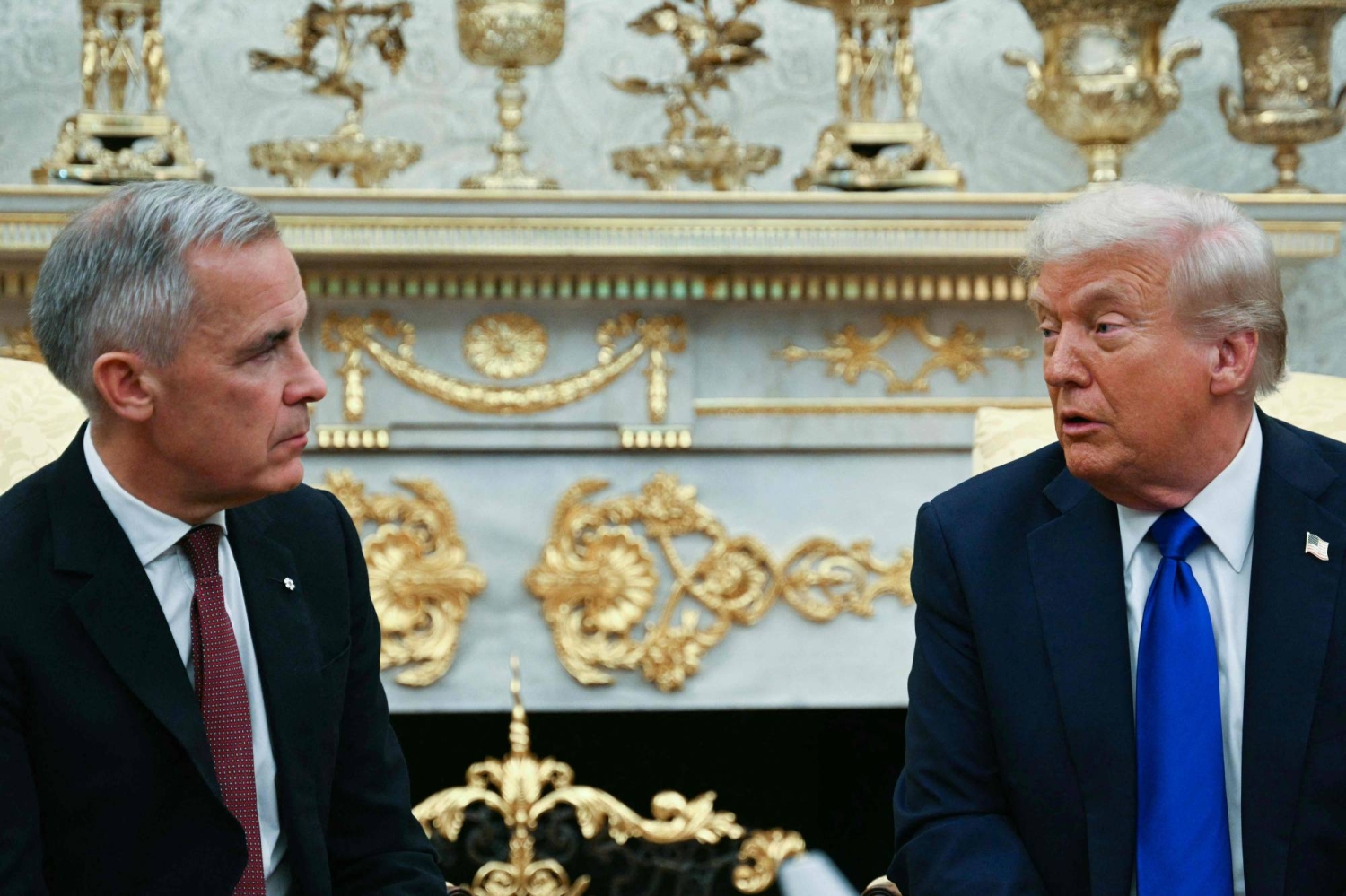Trump Terminates Trade Negotiations Amid Ontario’s Anti-Tariff Ad
U.S. President Donald Trump has abruptly ended all trade negotiations with Canada. This followed the release of a politically charged advertisement criticizing his tariff policies. The ad, sponsored by Ontario’s provincial government, featured a 1987 speech by former U.S. President Ronald Reagan warning that tariffs “hurt every American.” The message, aired widely on American networks, immediately drew Trump’s ire.
The U.S. administration has imposed a 35% levy on a broad range of Canadian imports. There are also targeted tariffs on automobiles, steel, and other manufacturing sectors. These trade measures have heavily affected Ontario, Canada’s industrial hub. Trump, in a series of social media posts, called the ad “FAKE” and “egregious.” He declared that “all trade negotiations with Canada are HEREBY TERMINATED.”
Ontario’s Premier, Doug Ford, has long been one of Trump’s most vocal critics regarding tariffs. Ford argues that the measures have caused widespread layoffs and weakened cross-border supply chains. Canada’s Prime Minister, Mark Carney, has sought to renegotiate terms under the United States–Mexico–Canada Agreement (USMCA) to ease economic pressure. However, progress has been minimal. Trump’s decision halts those efforts indefinitely. This raises uncertainty across North America’s integrated markets.
Reagan’s Legacy and the Ad Controversy
The Ontario government’s advertisement used excerpts from Reagan’s 1987 address, “Address to the Nation on Free and Fair Trade.” It originally defended selective tariffs on Japanese imports. In the ad, Reagan’s voice warns against long-term economic damage caused by trade barriers. However, the Ronald Reagan Presidential Foundation has accused Ontario officials of misrepresenting his message. They claim the audio was selectively edited and used without authorization.
Trump cited this statement as proof that the ad was intended to “interfere” with the U.S. Supreme Court review scheduled for November. This review will determine the legality of his sweeping tariffs on foreign goods. The ruling could force Washington to refund billions of dollars collected through trade duties. It makes it one of the most consequential economic cases in recent history.
The ad is part of a campaign worth $75 million Canadian dollars (about $54 million USD). It has also reignited debate within the United States over Reagan’s economic philosophy. Trump insisted that Reagan “LOVED TARIFFS FOR OUR COUNTRY.” He contradicted the late president’s recorded statements that tariffs were a “necessary evil” used only in specific cases.
Meanwhile, the Bank of Canada warned that escalating trade tensions could undermine growth. It could also increase inflationary pressures across the continent. Ontario’s economy relies heavily on exports of metals, automotive parts, and energy. The province has already suffered from U.S. levies—particularly the 50% tax on metals and 25% on automobiles.
The Economic and Political Fallout
The latest move represents the second time Trump has ended trade talks with Canada. Earlier this year, he suspended negotiations after Ottawa proposed a digital services tax targeting U.S. technology firms. Although Canada later withdrew the tax, Trump’s administration claimed it was a result of direct pressure from Washington.
Now, Ontario Premier Doug Ford has doubled down. He accused the U.S. of “weaponizing economic policy” and threatened to limit energy exports to American markets in retaliation. Ford described Trump’s tariffs as “a knife driven into Canada’s economic heart.” He urged U.S. lawmakers to pressure the White House to reconsider.
The impact of these developments reaches far beyond political theater. Canada remains the United States’ second-largest trading partner, with bilateral trade exceeding $700 billion annually. Economists warn that prolonged disruptions could harm both sides, threatening automotive production lines, steel manufacturing, and agricultural exports.
Analysts also note that this dispute could further strain North American unity. This occurs at a time when global competition from Asia intensifies. The uncertainty surrounding Trump’s tariffs and his willingness to weaponize trade policy for political purposes is already causing concern among U.S. businesses and investors.
As markets react to the escalating standoff, economists emphasize that trade wars rarely yield lasting victories. If negotiations remain frozen, industries on both sides of the border could face declining investment, job losses, and inflationary shocks. These are outcomes that neither government can afford to ignore.







